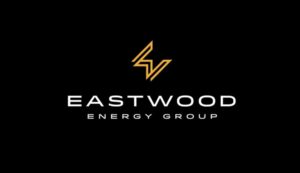I. Introduction
Electricity is the lifeblood of Houston’s bustling business scene. It powers everything from office spaces to manufacturing plants, driving productivity and innovation. This article aims to provide business owners with a comprehensive understanding of Houston’s electricity market, empowering them to make informed decisions. By delving into the intricacies of the market, business owners can navigate the complexities and leverage opportunities to optimize their energy usage and costs effectively. Understanding the dynamics of the electricity landscape in Houston is essential for businesses to thrive in today’s competitive environment.
A. Brief Overview of Houston Electricity Landscape
Houston’s electricity landscape is characterized by its diverse array of energy sources and its unique position as a hub for energy innovation. Traditional sources such as natural gas, coal, and nuclear power coexist alongside renewable energy sources like wind and solar. Deregulation has transformed the market, allowing businesses to choose among various Retail Electric Providers (REPs) and pricing plans. This deregulated framework has introduced competition, driving innovation and offering businesses the flexibility to tailor their electricity plans to their specific needs. However, navigating this complex landscape requires a nuanced understanding of the market dynamics and the factors influencing electricity rates and availability.

B. Importance of Reliable Electricity for Businesses
For businesses in Houston, reliable electricity is not just a convenience but a fundamental requirement for operations. Downtime due to power outages can lead to significant financial losses, disrupt supply chains, and damage reputation. Ensuring a reliable electricity supply is crucial for maintaining business continuity and safeguarding against unforeseen disruptions. Moreover, in sectors such as healthcare and emergency services, uninterrupted access to electricity is a matter of public safety and well-being. Therefore, investing in reliable power infrastructure and backup systems is essential for businesses to mitigate risks and thrive in today’s fast-paced business environment.
C. Preview of What the Article Will Cover
Throughout this article, we will explore various aspects of Houston electricity market tailored specifically for business owners. Topics will include an in-depth analysis of deregulation and its impact on the market, strategies for choosing the right electricity plan, tips for optimizing energy efficiency, leveraging renewable energy options, navigating regulatory compliance, and securing a reliable electricity supply. By the end of this journey, readers will have gained valuable insights and practical knowledge to make informed decisions and harness the full potential of Houston’s dynamic electricity market.
II. Understanding Houston Electricity Market
Houston’s electricity market is a complex ecosystem, influenced by factors such as deregulation, technological advancements, and shifting consumer preferences. As the energy capital of the world, Houston boasts a dynamic and evolving energy landscape, playing a pivotal role in driving economic growth and sustainability initiatives. With deregulation reshaping the traditional utility model, businesses operating within Houston’s electricity market face new challenges and opportunities. Understanding the intricacies of this complex market is crucial for businesses to make informed decisions. This ensures their long-term success in a competitive business environment.
A. Overview of Deregulation in the Texas Electricity Market
Deregulation transformed the landscape of the Texas electricity market, ushering in a new era of consumer choice and competition. This monumental shift empowered consumers, allowing them to select their Retail Electric Provider (REP) based on their specific needs and preferences. As a result, businesses in Houston gained the flexibility to tailor their electricity plans to suit their operational requirements and budget constraints. Understanding the implications of deregulation is paramount for businesses seeking to navigate the intricacies of the market effectively.
B. Explanation of Retail Electric Providers (REPs) in Houston
Retail Electric Providers (REPs) play a central role in Houston’s deregulated electricity market, offering a diverse range of electricity plans and services to consumers. These REPs act as intermediaries between electricity generators and end-users, facilitating the sale and distribution of electricity to businesses and residents alike. With numerous REPs competing for market share, businesses have the opportunity to explore different pricing plans, contract terms, and service offerings. Choosing the right REP is essential for businesses to optimize their electricity costs and ensure reliable service delivery.
- Reliant Energy
- Direct Energy
- Constellation
- Green Mountain Energy
- Cirro Energy
- Engie Energy
- Freepoint Energy Solutions
- Summer Energy
- Hudson Energy
C. Impact of Deregulation on Business Electricity Options
The deregulation of the electricity market has significantly expanded the options available to businesses seeking electricity services in Houston. By introducing competition among REPs, deregulation has driven innovation and flexibility in pricing and service offerings. Business owners now have the freedom to negotiate favorable rates and contract terms, allowing them to better manage their energy expenses and mitigate risks. However, navigating the multitude of options can be overwhelming for businesses, requiring careful consideration and analysis. Nonetheless, understanding the intricacies of deregulation empowers businesses to make informed decisions and leverage the competitive market to their advantage.
III. Factors to Consider When Choosing an Electricity Plan
Choosing the right electricity plan is crucial for businesses to manage costs and ensure reliable energy supply. Several key factors must be considered to make an informed decision.
A. Electricity Consumption Analysis for Businesses
Firstly, businesses should assess their electricity consumption patterns to determine their energy needs accurately. By analyzing historical usage data, businesses can identify peak demand periods and consumption trends. This information is essential for selecting an electricity plan that aligns with the business’s energy usage patterns. Additionally, understanding consumption patterns helps businesses anticipate future energy needs and plan accordingly. Moreover, conducting a thorough analysis enables businesses to identify opportunities for energy efficiency improvements and cost savings. Furthermore, businesses can explore strategies to optimize energy usage during peak demand periods, thereby reducing overall electricity expenses. Overall, conducting an electricity consumption analysis is a critical first step in choosing the most suitable electricity plan for businesses.
B. Peak Demand Management Strategies
Secondly, implementing peak demand management strategies can help businesses reduce electricity costs. Strategies such as load shifting, demand response programs, and energy-efficient technologies can effectively manage peak demand and lower overall electricity expenses. For instance, businesses can shift non-essential energy consumption to off-peak hours to take advantage of lower electricity rates. Similarly, participating in demand response programs allows businesses to reduce electricity usage during times of peak demand, thereby earning incentives or credits from the utility provider. Additionally, investing in energy-efficient technologies, such as LED lighting and smart HVAC systems, can significantly reduce energy consumption and lower electricity bills. By implementing these strategies, businesses can effectively manage peak demand and optimize their electricity usage, resulting in cost savings and improved sustainability.
C. Evaluating Fixed-Rate vs. Variable-Rate Plans
Thirdly, businesses must weigh the pros and cons of fixed-rate and variable-rate electricity plans. Fixed-rate plans offer stability and predictability, with a set rate for the duration of the contract. On the other hand, variable-rate plans fluctuate with market conditions, offering potential savings but also exposing businesses to price volatility. Therefore, businesses should consider their risk tolerance and budgeting preferences when choosing between fixed-rate and variable-rate plans. Moreover, evaluating historical electricity price trends can help businesses assess the potential cost implications of each plan type. Additionally, businesses should review the terms and conditions of each plan carefully, paying attention to factors such as contract duration and renewal terms. Ultimately, selecting the most suitable plan type depends on factors such as budgetary constraints, risk tolerance, and market conditions.
D. Contract Terms and Conditions to Watch Out For
Furthermore, carefully reviewing the terms and conditions of electricity contracts is crucial to avoid hidden fees and penalties. Businesses should pay attention to contract duration, early termination fees, billing practices, and any additional charges or surcharges included in the agreement. Moreover, businesses should ensure that the contract clearly outlines the rights and responsibilities of both parties to avoid misunderstandings or disputes later on. Additionally, seeking clarification on any unclear or ambiguous contract terms is essential to ensure full understanding and compliance. Furthermore, businesses should consider consulting with legal or energy procurement experts to review and negotiate contract terms on their behalf. By thoroughly reviewing and understanding the contract terms, businesses can avoid potential pitfalls and make informed decisions when selecting an electricity plan.

E. Assessing Additional Fees and Surcharges
Moreover, businesses should be aware of any additional fees and surcharges associated with their Houston electricity plan. These may include transmission charges, distribution charges, regulatory fees, and taxes. Understanding these costs upfront helps businesses accurately budget for their electricity expenses. Additionally, businesses should inquire about any potential hidden fees or surcharges that may not be explicitly stated in the contract. By assessing all potential costs associated with the electricity plan, businesses can avoid surprises and budget more effectively. Furthermore, comparing the total cost of ownership across different electricity plans allows businesses to make a more informed decision based on their financial goals and priorities.
F. Importance of Contract Flexibility
Lastly, choosing a Houston electricity plan with flexible contract terms can provide businesses with greater agility and adaptability. Flexible contracts allow businesses to adjust their energy usage and contract terms to meet changing needs and market conditions. For example, businesses may have seasonal fluctuations in energy demand or may undergo changes in operations that affect their electricity usage. By opting for flexible contract terms, businesses can avoid long-term commitments that may not align with their evolving needs. Additionally, flexible contracts may include options such as variable contract lengths or the ability to adjust pricing structures based on market conditions. Ultimately, contract flexibility enables businesses to respond effectively to changes in the market and maintain greater control over their energy costs.
IV. Tips for Optimizing Energy Efficiency
Improving energy efficiency is crucial for businesses to reduce costs and minimize environmental impact. Implementing effective energy efficiency strategies can lead to significant savings and promote sustainability.
A. Importance of Energy Efficiency for Businesses
Firstly, energy efficiency is vital for businesses to reduce operating expenses and improve profitability. By optimizing energy usage, businesses can lower their electricity bills and allocate resources to other critical areas of their operations. Moreover, energy-efficient practices contribute to environmental sustainability by reducing greenhouse gas emissions and minimizing the ecological footprint of businesses. Therefore, prioritizing energy efficiency aligns with corporate social responsibility goals and enhances brand reputation.
B. Implementing Energy-Efficient Technologies and Practices
Secondly, businesses can implement a variety of energy-efficient technologies and practices to reduce energy consumption. For example, upgrading to LED lighting systems can significantly lower your Houston electricity usage while providing better lighting quality. Similarly, installing energy-efficient HVAC systems and smart thermostats can optimize heating and cooling operations, reducing energy waste. Additionally, businesses can implement energy management systems to monitor and control energy usage in real-time, identifying areas for improvement and optimizing energy efficiency further.
C. Conducting Energy Audits to Identify Savings Opportunities
Thirdly, conducting regular energy audits is essential for businesses to identify potential energy-saving opportunities. Energy audits involve assessing the energy performance of buildings, equipment, and processes to identify areas of inefficiency. By analyzing energy usage data and conducting on-site inspections, businesses can pinpoint areas where energy is being wasted and develop targeted strategies to improve efficiency. Moreover, energy audits help businesses prioritize energy efficiency investments based on their potential return on investment and long-term savings.
D. Utilizing Smart Energy Management Systems
Furthermore, businesses can benefit from utilizing smart energy management systems to optimize energy efficiency. These systems use advanced technology, such as sensors and data analytics, to monitor and control energy usage in real-time. By collecting data on energy consumption patterns and equipment performance, smart energy management systems identify opportunities for optimization and automatically adjust energy usage to minimize waste. Additionally, these systems provide businesses with actionable insights and recommendations for improving efficiency and reducing costs.
E. Employee Engagement and Training for Energy Conservation
Lastly, fostering employee engagement and providing training on energy conservation practices is essential for promoting a culture of energy efficiency within the organization. Educating employees on the importance of energy conservation and providing them with practical tips for reducing energy consumption can empower them to contribute to energy-saving efforts. Additionally, involving employees in energy-saving initiatives, such as turning off lights and equipment when not in use or reporting energy waste, encourages active participation and ownership of energy efficiency goals. By engaging employees in energy conservation efforts, businesses can maximize the impact of their energy efficiency initiatives and create a sustainable workplace culture.
V. Renewable Energy Options in Houston Electricity Market
Exploring renewable energy options is essential for businesses aiming to reduce carbon emissions and transition towards a sustainable energy future. Houston electricity market offers a variety of renewable energy resources and initiatives for businesses to embrace clean energy solutions.
A. Solar Power as a Renewable Energy Source
Solar power presents a promising renewable energy option for businesses in Houston electricity market. With abundant sunlight throughout the year, solar panels can efficiently generate electricity to power businesses’ operations. Additionally, solar energy systems can be customized to meet the specific energy needs of businesses, ranging from rooftop installations to ground-mounted arrays. Investing in solar power not only reduces reliance on fossil fuels but also provides long-term cost savings through reduced Houston electricity bills and potential incentives or tax credits.
B. Wind Power Opportunities in Houston Electricity Market
Furthermore, wind power presents significant opportunities for businesses seeking renewable energy solutions in Houston electricity market. The city’s strategic location along the Gulf Coast and expansive plains makes it conducive to harnessing wind energy. Businesses can explore various wind power options, including purchasing renewable energy credits (RECs) from wind farms or investing in onsite wind turbines. By incorporating wind power into their energy portfolio, businesses can diversify their energy sources and contribute to the growth of clean energy infrastructure in the region.
C. Accessing Renewable Energy through Power Purchase Agreements (PPAs)
Moreover, businesses can access renewable energy through Power Purchase Agreements (PPAs), enabling them to procure electricity directly from renewable energy projects. PPAs allow businesses to support renewable energy development while locking in competitive long-term electricity rates. By partnering with renewable energy developers, businesses can benefit from predictable energy costs and demonstrate their commitment to sustainability to stakeholders.
D. Incentives and Rebates for Renewable Energy Adoption
Additionally, businesses in the Houston electricity market can take advantage of various incentives and rebates to offset the costs of adopting renewable energy solutions. State and federal incentive programs, such as the Solar Investment Tax Credit (ITC) and Property Assessed Clean Energy (PACE) financing, offer financial incentives to businesses investing in solar and other renewable energy technologies. Furthermore, local utility companies may offer rebates or incentives for installing renewable energy systems, further reducing the upfront costs and accelerating the return on investment for businesses.
E. Collaborating with Renewable Energy Providers and Initiatives
Lastly, businesses can collaborate with renewable energy providers and participate in community initiatives to accelerate the adoption of renewable energy in Houston electricity. Partnering with renewable energy developers, local organizations, and government agencies can provide businesses with access to expertise, resources, and networking opportunities to support their renewable energy goals. Additionally, joining industry associations and participating in sustainability-focused programs can help businesses stay informed about the latest trends and developments in renewable energy and sustainability practices. By actively engaging with renewable energy providers and initiatives, businesses can play a proactive role in driving the transition towards a cleaner and more sustainable energy future in the Houston electricity market.

VI. Navigating Energy Regulations and Compliance
Understanding and complying with energy regulations is essential for businesses operating in Houston electricity market. Navigating the regulatory landscape ensures legal compliance and minimizes risks associated with non-compliance.
A. Overview of Energy Regulations in Houston electricity
The Houston electricity market is subject to various federal, state, and local energy regulations aimed at ensuring fair competition, consumer protection, and environmental sustainability. These regulations govern aspects such as electricity generation, distribution, pricing, and environmental standards. Businesses must stay informed about relevant regulations and ensure compliance to avoid penalties and legal ramifications.
B. Compliance Requirements for Businesses
Businesses are required to comply with a range of energy regulations to operate legally and responsibly. Compliance requirements may include obtaining permits and licenses for energy-related activities, adhering to energy efficiency standards, and reporting energy usage data to regulatory authorities. Additionally, businesses must stay updated on changes to energy regulations and adjust their operations accordingly to maintain compliance.
C. Environmental Regulations and Sustainability Initiatives
Environmental regulations play a significant role in shaping energy policies and practices in Houston electricity. Businesses are subject to regulations aimed at reducing carbon emissions, protecting natural resources, and promoting environmental sustainability. Compliance with environmental regulations may involve implementing energy-efficient technologies, reducing waste and pollution, and investing in renewable energy sources.
D. Impact of Energy Regulations on Business Operations
Energy regulations can have a profound impact on business operations, influencing energy procurement strategies, investment decisions, and operational efficiency. Businesses must carefully assess the implications of energy regulations on their operations and develop strategies to mitigate risks and capitalize on opportunities. Compliance with energy regulations is not only a legal requirement but also a strategic imperative for businesses seeking to maintain competitiveness and reputation in the market.
E. Engaging with Regulatory Authorities and Industry Organizations
Engaging with regulatory authorities and industry organizations is essential for businesses to stay informed about energy regulations and compliance requirements. Participating in industry forums, workshops, and advocacy groups allows businesses to voice their concerns, seek clarification on regulatory matters, and stay abreast of regulatory developments. Moreover, building positive relationships with regulatory authorities fosters transparency and cooperation, facilitating smoother compliance processes for businesses.
F. Investing in Compliance Management Systems
Investing in compliance management systems can help businesses streamline the process of monitoring and ensuring compliance with energy regulations. These systems automate compliance tasks, track regulatory changes, and generate reports to demonstrate compliance to regulatory authorities. By leveraging technology and software solutions, businesses can reduce the administrative burden associated with compliance management and focus on core business activities while maintaining regulatory compliance.
VII. Securing Reliable Houston Electricity Supply
Ensuring a reliable Houston electricity supply is essential for businesses to maintain operations and meet customer demands. Implementing strategies to secure reliable electricity supply safeguards against disruptions and minimizes downtime.
A. Importance of Reliable Electricity Supply for Businesses
Reliable electricity supply is paramount for businesses to power essential operations and equipment. It enables businesses to meet production deadlines, maintain service levels, and uphold customer satisfaction. Additionally, reliable electricity supply minimizes the risk of costly disruptions, such as downtime, equipment damage, and lost revenue. Therefore, investing in measures to secure reliable electricity supply is a critical aspect of business continuity planning.
B. Implementing Redundancy Measures
Implementing redundancy measures is an effective strategy for ensuring a reliable electricity supply. Businesses can install backup generators, uninterruptible power supply (UPS) systems, and redundant power lines to mitigate the impact of power outages. By having alternative power sources in place, businesses can maintain operations during grid failures or unexpected interruptions, minimizing downtime and preserving productivity.
C. Monitoring and Maintenance of Electrical Infrastructure
Regular monitoring and maintenance of electrical infrastructure are essential for ensuring a reliable Houston electricity supply. Businesses should conduct routine inspections, testing, and maintenance of electrical equipment to identify and address potential issues proactively. Additionally, implementing predictive maintenance techniques, such as thermography and vibration analysis, helps detect early signs of equipment failure and prevent unplanned downtime.
D. Collaboration with Utility Providers
Collaborating with utility providers is crucial for businesses to secure a reliable electricity supply. Establishing open communication channels with utility companies allows businesses to receive timely updates on maintenance schedules, planned outages, and grid reliability. Moreover, businesses can work with utility providers to develop contingency plans and emergency response protocols to address unforeseen events and minimize disruptions to their operations.
E. Investing in Energy Storage Solutions
Investing in energy storage solutions can enhance the reliability of Houston electricity supply for businesses. Battery storage systems and other energy storage technologies allow businesses to store excess energy during off-peak hours and use it during peak demand periods or grid outages. By incorporating energy storage solutions into their energy infrastructure, businesses can improve resilience, reduce reliance on the grid, and optimize energy usage.
F. Disaster Preparedness and Resilience Planning
Disaster preparedness and resilience planning are essential components of securing a reliable electricity supply. Businesses should develop comprehensive contingency plans and resilience strategies to address various scenarios, such as natural disasters, extreme weather events, and cyber-attacks. By identifying potential risks, implementing preventive measures, and establishing response protocols, businesses can minimize the impact of disruptions and ensure continuity of operations during emergencies.
G. Continuous Monitoring and Improvement
Continuous monitoring and improvement of Houston electricity supply reliability are essential for businesses to adapt to changing conditions and maintain resilience. Businesses should regularly review and update their reliability strategies, incorporating lessons learned from past incidents and emerging technologies. Additionally, monitoring key performance indicators (KPIs) and conducting periodic assessments help businesses identify areas for improvement and optimize their reliability measures proactively. By adopting a proactive approach to reliability management, businesses can enhance their operational efficiency, mitigate risks, and maintain a competitive edge in the market.
VIII. Conclusion
In drawing conclusions, it’s evident that navigating Houston electricity market demands careful deliberation across various fronts. From selecting suitable electricity plans to ensuring a dependable supply, businesses must prioritize efficiency, compliance, and sustainability for enduring success.
A. Key Takeaways
Reflecting on our discussion, several vital points emerge. Understanding energy consumption patterns, evaluating plan options, and adhering to regulations are fundamental steps. By accordingly, investing in energy efficiency, renewable energy, and resilience measures, businesses can secure long-term cost savings and environmental benefits.
B. Importance of Strategic Decision-Making
Strategic decision-making stands as a cornerstone in navigating the dynamic Houston electricity landscape. Businesses must stay abreast of market trends, regulatory shifts, and technological advancements to make well-informed choices. By remaining agile and proactive, businesses can capitalize on opportunities and mitigate potential risks.
C. Commitment to Sustainability
Embracing sustainability is not just a moral imperative but also a strategic advantage for businesses. Integrating renewable energy solutions, implementing energy-efficient practices, and championing environmental stewardship enhance brand reputation and stakeholder trust. Transitioning towards sustainability fosters innovation, drives operational efficiency, and positions businesses as leaders in responsible corporate citizenship.
D. Continuous Adaptation and Improvement
In a rapidly evolving Houston electricity market, businesses must prioritize continuous adaptation and improvement. Remaining responsive to changing market dynamics, embracing emerging technologies, and lastly, fostering a culture of innovation are paramount. By continuously refining strategies and processes, businesses can maintain a competitive edge and future-proof their operations.
E. Looking Ahead
As we gaze into the future, Houston’s electricity market presents both challenges and opportunities. Embracing innovation, collaboration, and sustainable practices will be critical for businesses to thrive. By harnessing collective efforts and driving positive change, we can pave the way for a brighter, more sustainable energy future.
F. Call to Action
In conclusion, I urge businesses to prioritize energy efficiency, sustainability, and resilience in their operations. Through strategic investments and responsible practices, businesses can optimize energy performance while making a positive impact on society and the environment. Let us unite in our commitment to forging a path towards a greener, more sustainable energy landscape for Houston and beyond.
Need Additional Assistance?

Please visit Eastwood Energy Group for additional information or further assistance in choosing an electricity provider.